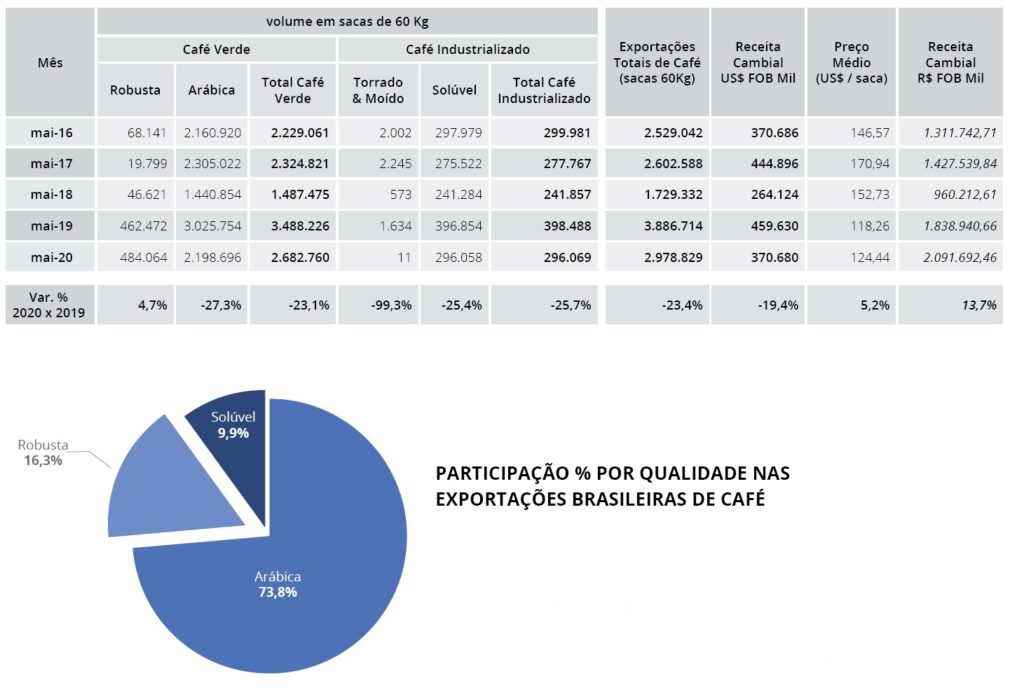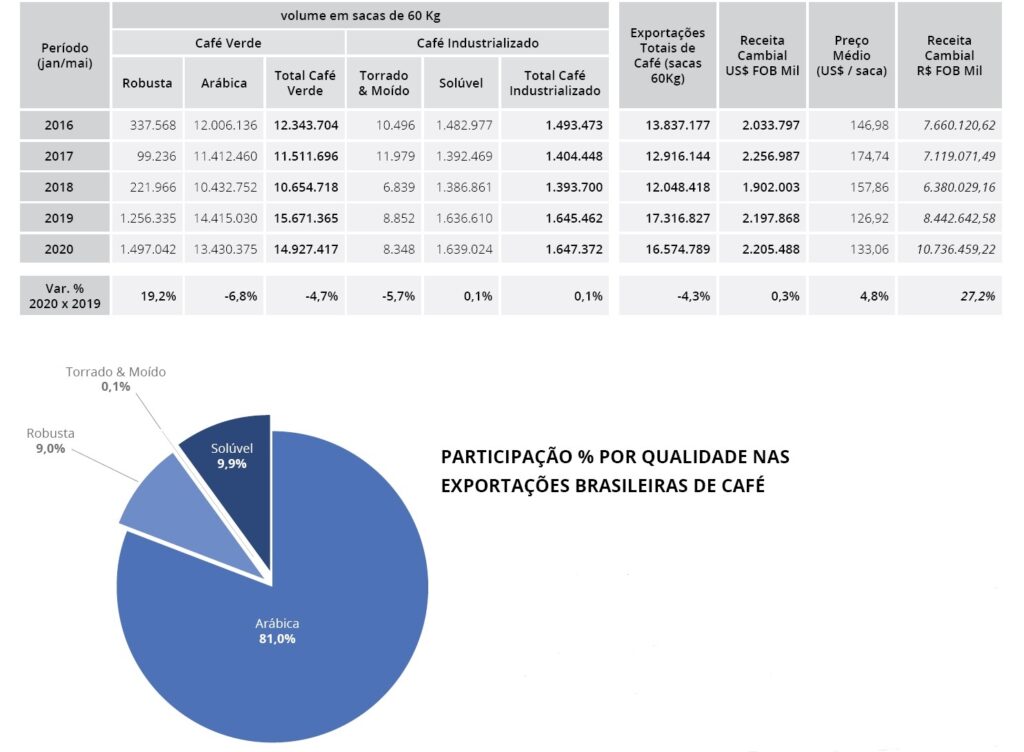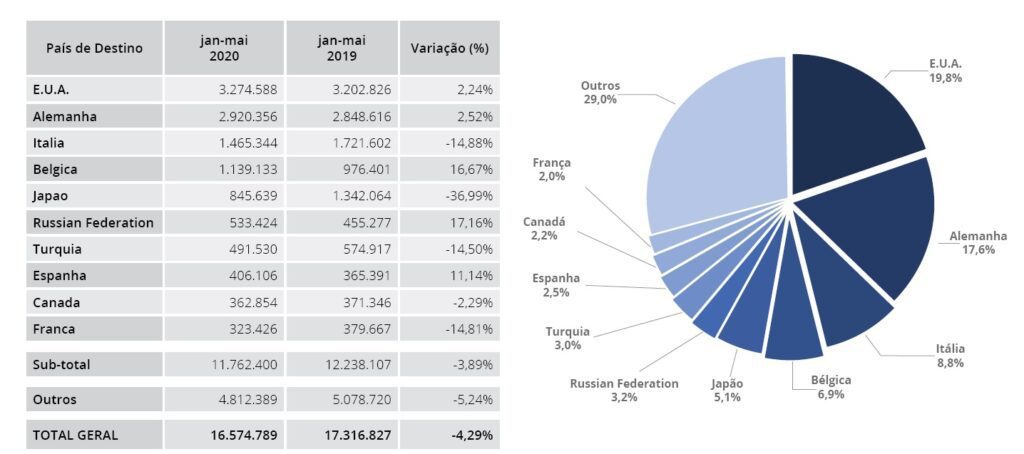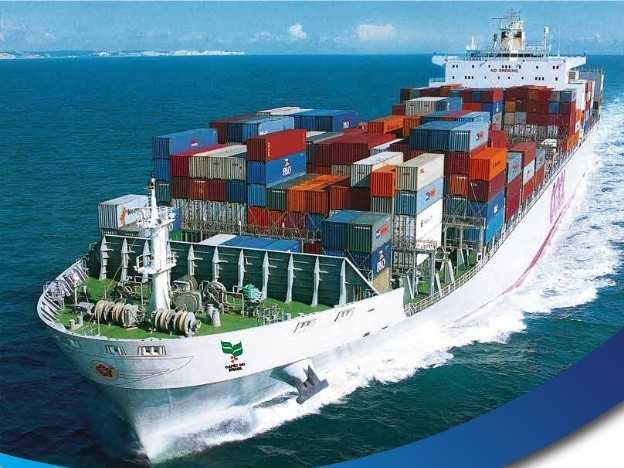SÃO PAULO, Brazil – Coffee exports from Brazil fell sharply in May, according to new data from Brazilian Coffee Exporters Council released on Wednesday. Shipments from the world’s largest coffee producer and exporter were down 23.4% on year to 2,978,829 bags.
Carry-over stocks are dwindling, while the commercialisation of the new crop of Arabica is still at an early stage.
But the drop in exports may also reflect trader caution over demand, warns analysts and traders.
“After asking to push shipments forward in the beginning of the pandemic outbreak amid logistics concerns, importers have asked to postpone deliveries,” Nelson Salvaterra, a broker at Rio de Janeiro-based Coffee New Selection, said in a text message quoted by Bloomberg.
“They are more cautious in building up inventories, waiting for the economy to reopen and then have a clearer idea on the demand.”
Exports of green coffee fell 23.1% to 2,682,760 bags of which 2,198,696 of Arabica (-27.3%) and 484,064 bags of Robusta (+4.7%)
Sales abroad of processed coffee (mostly soluble) were down by 25.7% to 296.069 bags.
 Brazil coffee exports during the first 5 months of calendar year 2020 went down by 4.3% to 16.574.789 bags.
Brazil coffee exports during the first 5 months of calendar year 2020 went down by 4.3% to 16.574.789 bags.
Shipments of green coffee similarly down by 4.7% to 14.927.417 bags, while Robusta sales rose by 19.2% to almost 1.5 million bags.
Exports of processed coffee were almost flat on year (+0.1%) at almost 1.6 million bags.
 Shipments to the U.S. and Germany, the main destinations for Brazil’s coffees, were up 2.2% and 2.5% respectively. Exports to Italy were down by almost 15% to less than 1.5 million bags.
Shipments to the U.S. and Germany, the main destinations for Brazil’s coffees, were up 2.2% and 2.5% respectively. Exports to Italy were down by almost 15% to less than 1.5 million bags.
 “Shipped volume results in May were good, especially considering the fact that we are in the next-to-last month of the lower-cycle crop (19/20), as well as facing a challenging pandemic. Despite the lower volumes than in May 2019, there was a significant increase in Conilon exports, already a reflection of a good harvest for the new crop (20/21),” Cecafé chair Nelson Carvalhaes was quoted in a press release as saying.
“Shipped volume results in May were good, especially considering the fact that we are in the next-to-last month of the lower-cycle crop (19/20), as well as facing a challenging pandemic. Despite the lower volumes than in May 2019, there was a significant increase in Conilon exports, already a reflection of a good harvest for the new crop (20/21),” Cecafé chair Nelson Carvalhaes was quoted in a press release as saying.
He stressed the efforts of the Brazilian coffee industry, utilizing all available inventories to keep meeting global demand with quality, efficiency and sustainability, and contributing to good trade balance results for Brazil.
“After all, the work of this whole industry has only one goal: affording consumers the pleasure of enjoying a good cup of coffee at any time of day,” he added.


















